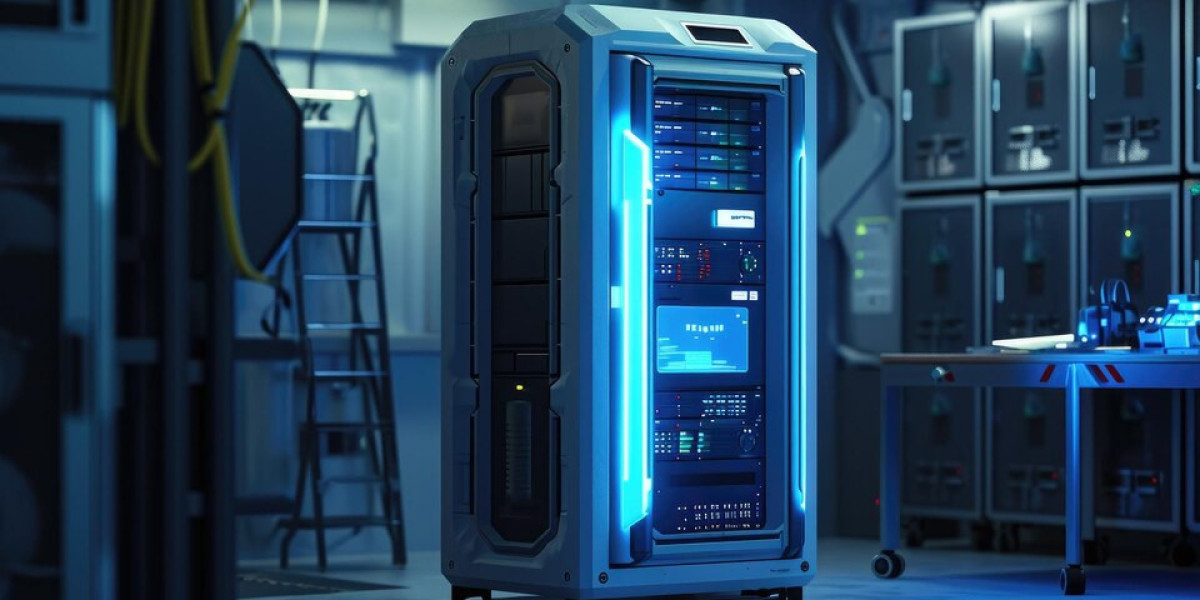Network Attached Storage (NAS) systems play a vital role in modern IT infrastructure. For businesses that rely on scalable, operationally reliable storage solutions to manage vast amounts of data, enterprise NAS storage is essential. But what makes a NAS system ideal for long-term scalability and reliability? And how do businesses ensure their investment in NAS storage meets both immediate and future needs?
This blog explores the critical components of NAS systems purpose-built for enterprise environments, detailing why scalability and operational reliability are non-negotiable for modern businesses. You'll also discover how to evaluate NAS solutions to make informed decisions that align with your organization's growing demands.
What is a NAS System?
A NAS system is a dedicated file storage solution that allows multiple users and devices to access data from a centralized location over a network. Unlike traditional direct-attached storage (DAS), NAS systems connect directly to a network, making them accessible across devices without being physically attached.
Enterprise NAS storage solutions go beyond basic file sharing, offering advanced features such as redundancy, high availability, backup integration, and the ability to handle large volumes of unstructured data.
Why Scalability Is Essential in NAS Systems
Modern enterprises generate and store unprecedented amounts of data, and this growth shows no signs of slowing. A NAS system built for scalability ensures that your organization can meet future storage demands without needing a complete overhaul.
1. Handling Data Growth
Scalable enterprise NAS storage allows you to expand capacity as data requirements evolve. This flexibility is critical for businesses operating in industries like healthcare, media, or financial services, where data retention regulations and high-resolution file types (such as video or imaging) contribute to rapid storage growth.
For example, scalable NAS systems such as those supported by Azure NAS storage enable businesses to start small and expand seamlessly to meet the demands of large-scale workflows like Big Data analytics or machine learning.
2. Accommodating New Technologies
Scalable NAS systems are designed to support emerging technologies. For instance, with the rise of the Internet of Things (IoT) and edge computing, enterprises handle diverse workloads that can strain traditional storage architectures. A scalable NAS solution ensures compatibility and operational efficiency as these workflows grow more complex.
3. Cost-Effective Growth
Traditional storage systems often require upfront investments in excess capacity, resulting in wasted resources. Scalable NAS systems, however, allow storage capacity to grow incrementally based on demand, making them more cost-efficient.
What Makes a NAS System Reliable?
Even with scalable architecture, NAS systems must provide operational reliability to meet the demands of today’s always-on businesses. Downtime or loss of critical data can have devastating consequences for enterprises. Therefore, robust reliability features are key considerations when evaluating NAS solutions.
1. Redundancy and Fault Tolerance
Enterprise NAS storage systems are designed with redundancy in mind. Key features include RAID configurations, dual-controller setups, and hot-swappable drives, which ensure data availability even during hardware failure. For example, a RAID 6 setup in a NAS system provides extra layers of protection by tolerating multiple drive failures without data loss.
2. High Availability (HA)
High Availability is more than a luxury—it's a core requirement for enterprises relying on NAS for critical operations. Redundant power supplies, network interfaces, and failover clustering guarantee minimal disruption even during infrastructure failures. Azure NAS storage solutions, for instance, ensure high availability by integrating with cloud ecosystems to replicate data seamlessly and maintain service uptime.
3. Automated Backup and Disaster Recovery
Reliable NAS systems simplify data protection by offering built-in backup mechanisms and compatibility with disaster recovery strategies. Enterprise NAS storage often integrates features like snapshot technology for versioning and rollbacks, ensuring enterprises are never more than minutes away from restoring critical files.
4. Performance Under Heavy Workloads
Reliability extends beyond uptime. NAS systems must maintain consistent performance under heavy workloads, particularly for enterprises with demanding applications such as video editing, database management, or virtualization. Advanced caching algorithms and SSD-enabled tiers in NAS solutions ensure peak performance without bottlenecks.
Key Considerations When Choosing an Enterprise NAS Storage Solution
Selecting the right NAS system for enterprise needs requires a careful balance of scalability, reliability, and specialized features. Below are the considerations enterprises should evaluate before investing in a NAS system.
1. Storage Capacity vs. Performance
While scalability ensures room for growth, enterprises must also assess their performance requirements. Does the NAS system support high IOPS (Input/Output Operations Per Second) for applications requiring fast access? Hybrid NAS systems, combining HDD drives for capacity and SSDs for speed, can be an excellent solution.
2. Integration With Cloud Storage
Hybrid cloud integration is a must for modern enterprises. Solutions like Azure NAS storage offer seamless hybrid capabilities, enabling businesses to retain control over sensitive data while leveraging cloud elasticity for archival storage or secondary backups.
3. Security Features
Enterprises need to prioritize built-in security protocols when selecting a NAS system. Look for systems offering encryption (in-transit and at rest), access control lists (ACLs), and multi-factor authentication. Advanced security measures provide peace of mind in industries that handle sensitive data such as finance or healthcare.
4. Vendor Support and Ecosystem
The reliability of enterprise NAS storage depends, in part, on the vendor ecosystem. Leaders like Azure, offer more than just hardware—they provide robust technical support, firmware updates, and participation in emerging standards.
Implementing NAS Storage for Long-Term Success
Implementing a NAS system is more than a technical upgrade; it’s a strategic business decision. Align your NAS implementation with organizational goals to maximize its ROI. For example, businesses focused on digital transformation could pair their NAS with AI-powered analytics tools or cloud-based collaboration platforms like Microsoft Teams.
Training and change management are also critical. Ensure your IT team understands best practices for maintaining redundancy and optimizing NAS system performance over time.
Begin Your Search for the Perfect NAS Solution
Enterprise NAS storage is no longer a “nice-to-have” but a necessity for businesses requiring reliable, scalable data management solutions. By prioritizing scalable capacity, operational integrity, and advanced security, companies can future-proof their IT infrastructure while minimizing operational risks.
If your business is considering adopting or upgrading its NAS system, now is the time to act. Explore how scalable enterprise NAS solutions, such as those built on Azure NAS storage, can transform your data operations.



